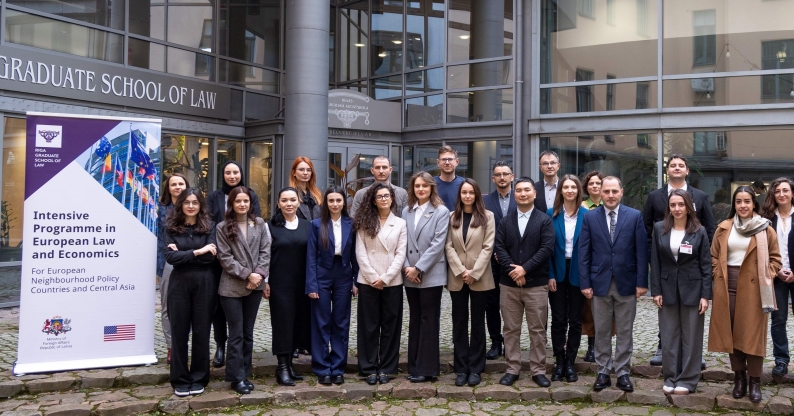ELIGIBILITY CRITERIA
Q: I am a national of a country that is not on the list of eligible countries. Can I apply?
A: Unfortunately, no. The list of eligible countries is exhaustive. However, it is regularly reviewed, and your country might be eligible for one of the future intakes.
Q: Is there an age limit for the programme?
A: No, no age limits are applied.
Q: Is any Certificate issued upon completion of the Programme?
A: Upon completion of the Programme, you will receive a Certificate, which allows for later possible conversion toward a full Masters degree (at your own expense).
LANGUAGE REQUIREMENTS
Q: What is the minimum IELTS/TOEFL score?
A: The required minimum level is 525 points for TOEFL (for a computer test - 196; Internet based test - 69-70) and 5.5 for IELTS.
Q: I have taken IELTS/TOEFL test several years ago, and the result might be outdated. Do I have to re-take it?
A: No, you can submit the score that you have. All short-listed candidates will have to pass an interview by Skype/phone to show their level of English.
Q: I don’t have an IELTS/TOEFL score. Could I prove my English proficiency by some other means?
A: If you have studied in English or have been working using English, you may submit a letter explaining how and where you learned/used English and how you personally would evaluate your knowledge.
In addition, all short-listed candidates will have to pass an interview by Skype/phone to show their level of English.
EDUCATION REQUIREMENTS
Q: I am an undergraduate student. Can I apply?
A: Candidates can apply to the programme if they have obtained at least a first level University degree at the time of application.
Q: I have a University degree, but not in Law. Can I apply?
A: Yes, having a degree in Law is not required.
PROFESSIONAL REQUIREMENTS
Q: What kind of professional experience is required?
A: Applicants should have recent professional experience (at least past 2-3 years) in the public sector (government and municipal institutions, public offices), NGOs or academia.
Q: I am working at a law firm/banking sector/limited liability company. Can I apply?
A: Eligible applicants should be currently working in a position related to the public administration, NGOs or academia. Regretfully, applicants working in the private sector are not eligible.
Q: I am not working at the moment. Can I apply?
A: All applications are reviewed individually. Candidates with no job experience for the past few years are not eligible. However, candidates who have recently discontinued employment could apply if they have recent work experience (at least 2-3 years) in a position related to the public administration, NGOs or academia.
Q: Is an internship considered as professional experience?
A: As a general rule, internships are not considered as professional experience. In exceptional cases, recent and sufficiently long internships in the public sector, NGO or academia might be considered as professional experience. The selection committee evaluates such situations individually.
APPLICATION PROCESS
Q: Where can I apply?
A: Applications for participation can be submitted via RGSL online admission platform here: https://apply.rgsl.edu.lv/
Q: Can I send you some documents after the application deadline?
A: No new documents will be accepted after the application deadline.
DIPLOMA
Q: Do I have to translate my diploma to English? Do I have to legalize my documents?
A: For the Intensive Programme, RGSL does not formally require translation and legalization of diplomas.
Translation of the diploma itself (not the transcript) would be advisable (but not mandatory) for diplomas issued in languages other than English or Russian.
Q: I will get my Masters diploma a few days after the application deadline. Can I send it then?
A: Unfortunately, no new documents will be accepted after the application deadline, but there are several actions you could take.
First, you can mention this degree in the application form with a comment that the diploma is expected on a certain date.
Second, your University can provide you a reference letter stating that you have finished your master’s studies and the diploma will be awarded to you in the immediate future.
In any case, your Bachelor diploma makes you eligible for application, and during the evaluation process the selection committee will place emphasis on the applicants’ current job positions.
RECOMMENDATION LETTER
Q: How can I submit my recommendation letter?
A: You need to indicate your referee’s e-mail in the application form. Then, he/she would submit recommendation letter directly to the application system. For the reasons of confidentiality, recommendation letters submitted by the applicants themselves are not admitted.
Q: The referee has received a link to the application system. How much time does he/she have to submit the reference?
A: The referee has to submit a reference until the application deadline.
Q: Who has to submit recommendation letter for me: former university professor or current employer?
A: Priority is always given to a recommendation letter from your current employer.
Q: Can I submit a recommendation letter from my previous employer?
A: As an exception, a recommendation from a previous employer is accepted where the employment relationship has terminated recently (no longer than 3 months).
Q: I am the chief executive at my organization. Who can provide my recommendation letter?
A: For persons holding the highest positions in their organizations, a recommendation from a partner organization will be sufficient, especially if the said organization is a reputable long-term partner.
Q: There is possibility to ask for a reference by entering an email address or by uploading it as a scanned document, which is better?
A: Preference is given to the first option as it provides the selection committee with important information.
You may, however, submit a recommendation letter as a separate document in case there is no opportunity to give your referee’s e-mail address.
PROGRAMME COSTS
Q: What costs will be covered for participants?
A: The Programme is fully covered.
Cost coverage for the participants will include travel to Riga and from Riga, accommodation during the whole duration of the Programme, insurance, study visits to Brussels and Luxembourg as well as a modest per diem for living expenses in Riga.
Q. I received an Invoice “Riga Graduate School of Law application processing fee”, should I pay it?
A. The invoice was issued to you because you applied to one or more of the full-time programmes (Bachelors, Masters or PhD) offered by the Riga Graduate School of Law. If the intent is to apply only to the Intensive Programme, you are not required to pay the invoice.
Q: If my family is travelling with me, can we have some financial aid?
A: The costs for the Programme are covered exclusively for the participant.



